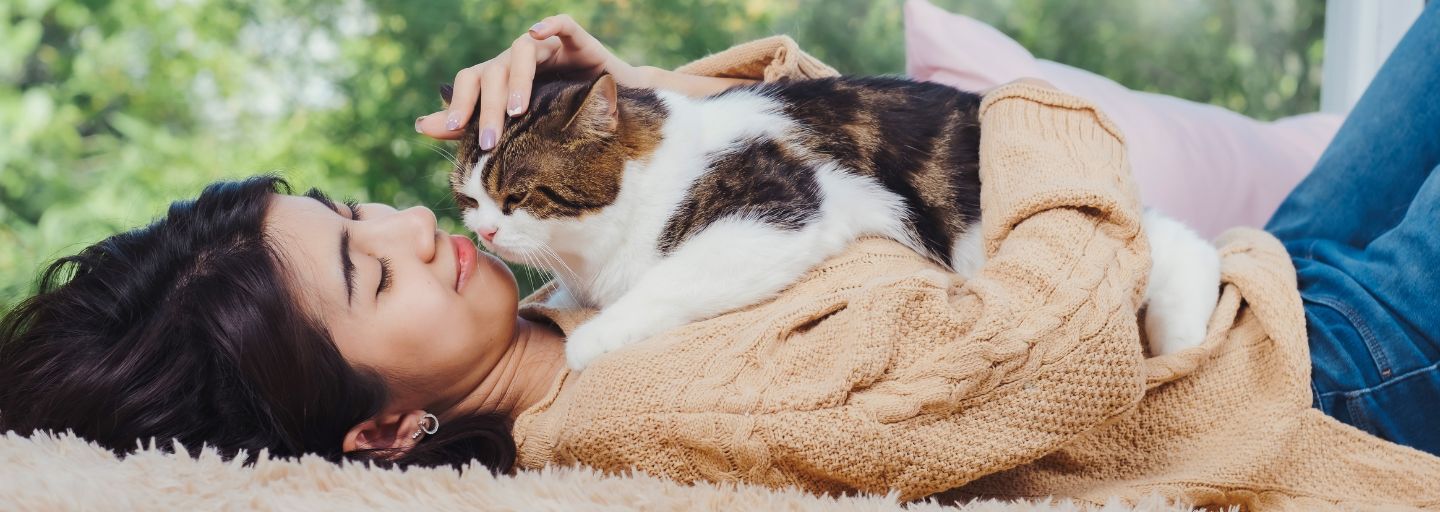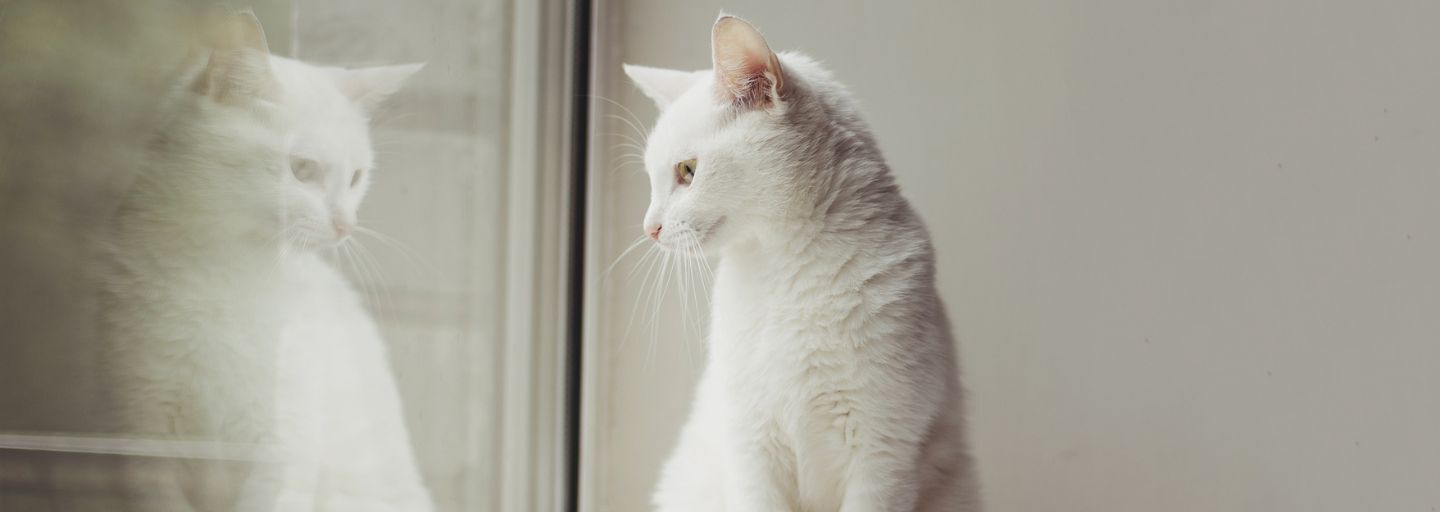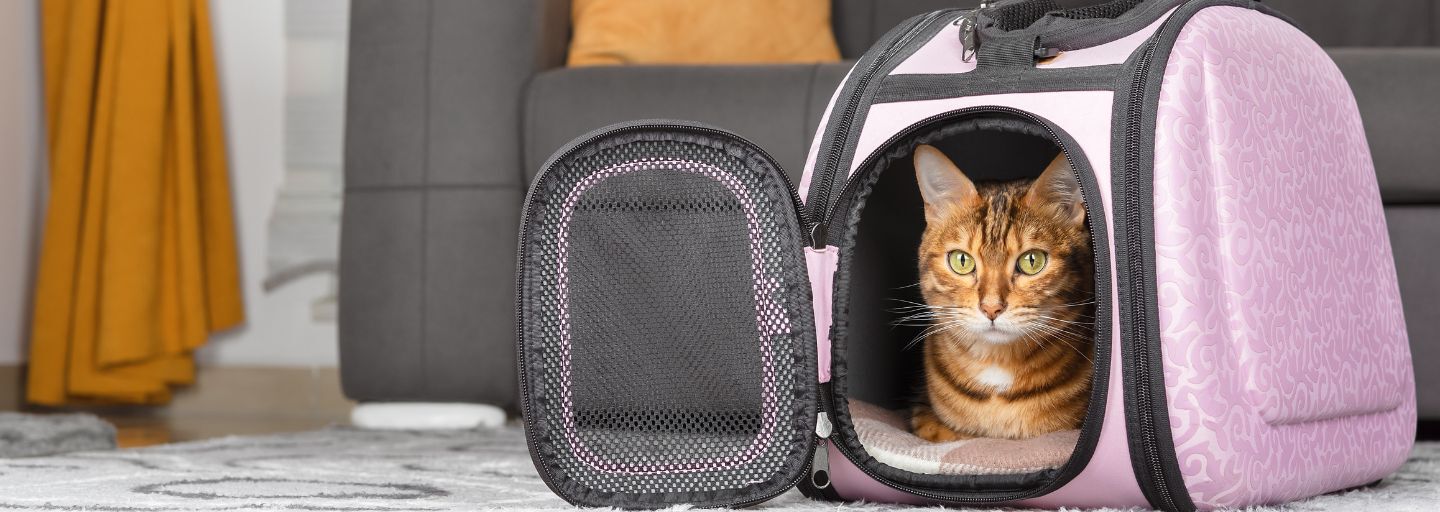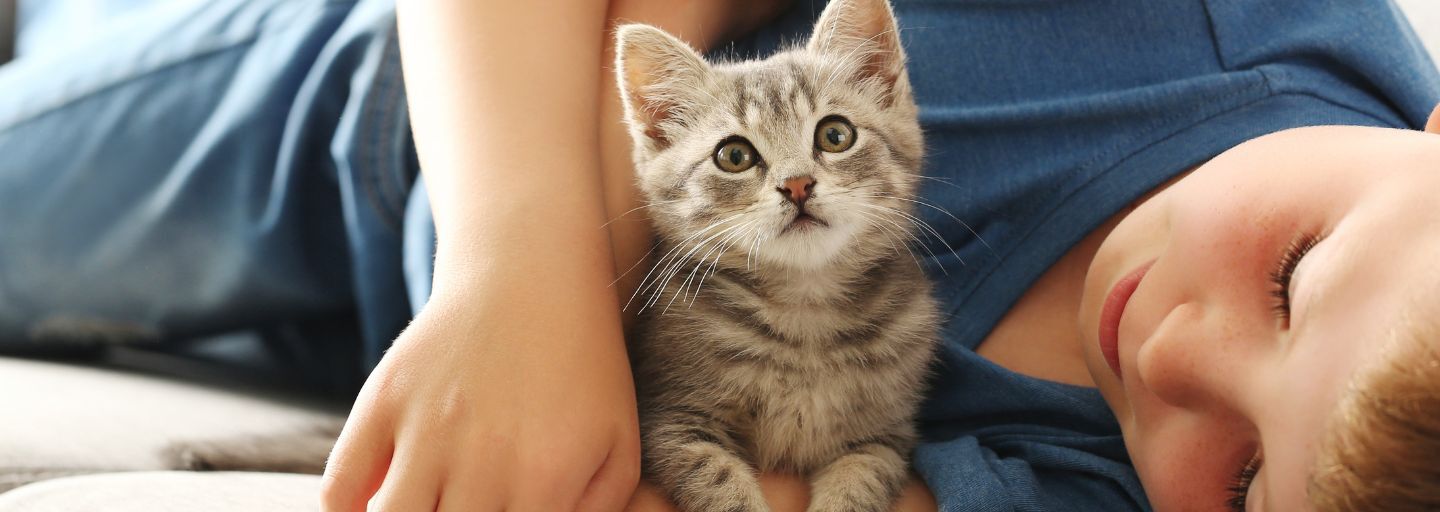Since cats do so much to help our stress levels, it’s important to remember that they can get stressed too.
Some stressful situations can be good for keeping a cat engaged and stimulated – allowing your cat to feel new sensations through play and exposure to the outdoors is a positive example of stress. But chronic stress can lead to health issues in your cat.
Watch for the signs of chronic stress, like changes in your cat’s appetite or sleeping patterns, a drop in energy, or withdrawal. If you see any of these symptoms, check with your veterinarian to eliminate any medical problem.
But if your veterinarian thinks it’s stress-related, here are some common causes of chronic cat stress, along with ways to help manage your cat’s anxiety.
Changes in the Home
Did you recently move to a new home? Or perhaps you frequently rearrange furniture in your current home? Home repairs or remodeling? Cats are sensitive to their environments, and constant changes in the home can make your cat feel like he or she is out of control.
What you can do: Try to keep as many things tidy and consistent as possible. Remember to make sure your cat has unobstructed access to food, water, and the litter box at all times.
Addition or Subtraction to the Social Circle
If you adopt another pet, improper introduction can stress out your cat. A new human – say, a baby, or guests, or a new significant other – can stress your cat out as well. Similarly, the loss of a family member – in the case of death, or even a child heading off to college – changes your cat’s social circle in a stressful way.
What you can do: Since these adjustments are unavoidable, help your cat by adding more play and exercise to his or her day. Now would be the ideal time to try out leash walking with your pet – he or she will be allowed to explore the outdoors. As with people, a safe change of scenery can be a big help.
Seasonal and Temperature Changes
Although your cat may live inside, he or she is still very in tune with weather, the sun, and the outdoors. Changes in the seasons and differences in temperature can greatly affect your cat’s overall stress levels. For example, when we adjust for Daylight Savings Time, a cat’s internal clock gets out of whack.
What you can do: If you live in a northern climate, increase the frequency of playtime during winter – since birds have migrated south, there are fewer things for your cat to watch out the window! Also, make sure your cat has blankets to snuggle in for warmth. On hot days, make sure your cat has plenty of fresh water and cool hideouts to rest in. Note that while you may enjoy fans, some cats might not like the noise and the way the breeze feels on their fur.
Overstimulation
Boredom can be a big problem for cats, but so can overstimulation. Because cats have such sensitive hearing and skin, excessive noise and touching can cause a great deal of stress. Constant, loud TV and music, dogs barking, and people shouting might be stressful to your cats. So is too much touching.
What you can do: Pay attention to your cat’s body language. Cats are open to being petted and played with, but be sure you’re in tune with your cat’s attitude toward touching – if there are any signs of discomfort, give the touching a rest. Communicate with any children or other people in your home so they keep this in mind too. In terms of noise, make sure you keep your TV and music at a comfortable volume for your cat.
Food Can Be a Constant
Feeding great food like Purina® Pro Plan® can provide a constant in your cat’s life. And being mindful of the types of stressors and stressful situations listed above can go a long way towards building an extraordinary life together with your cat.






